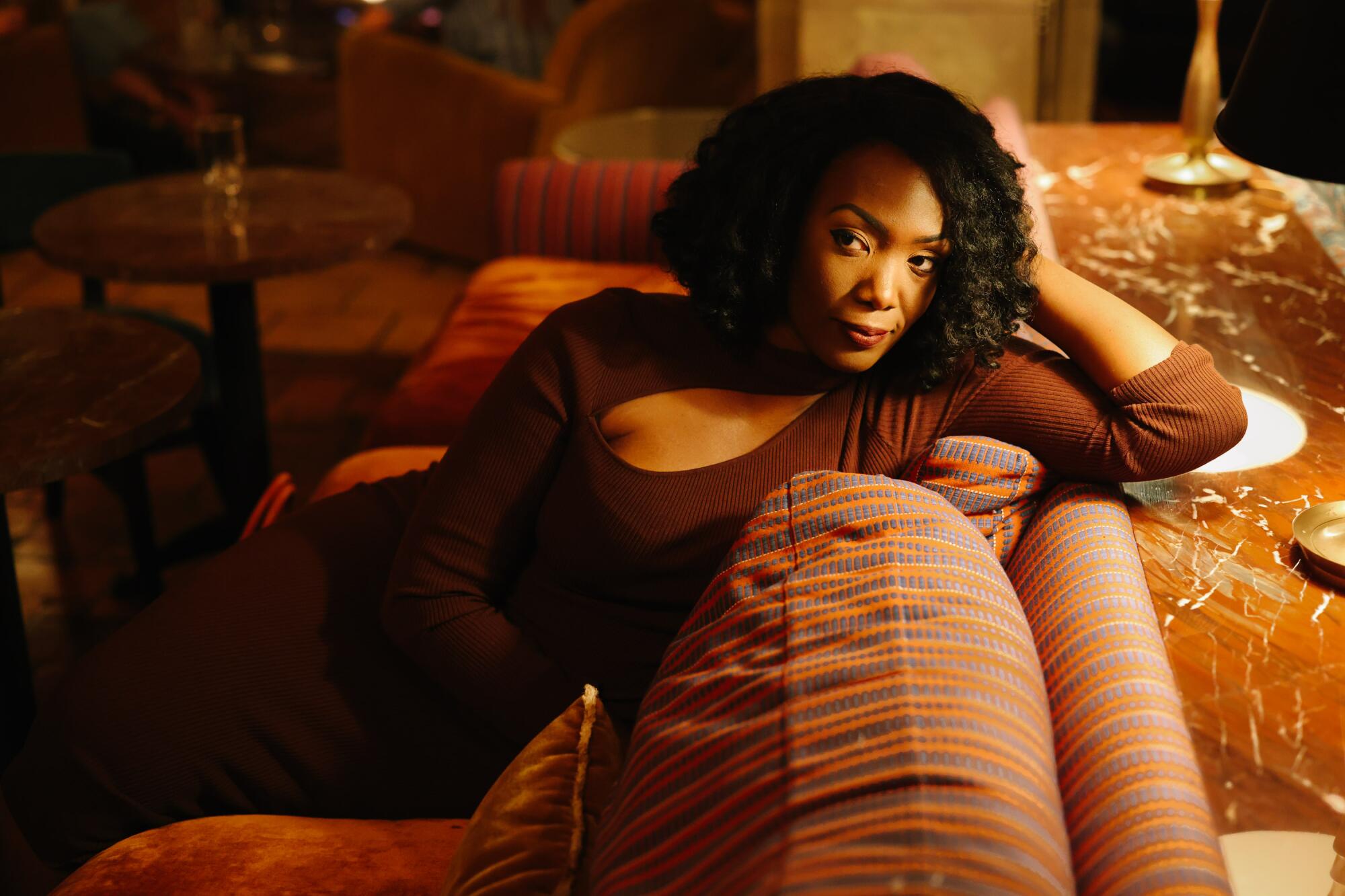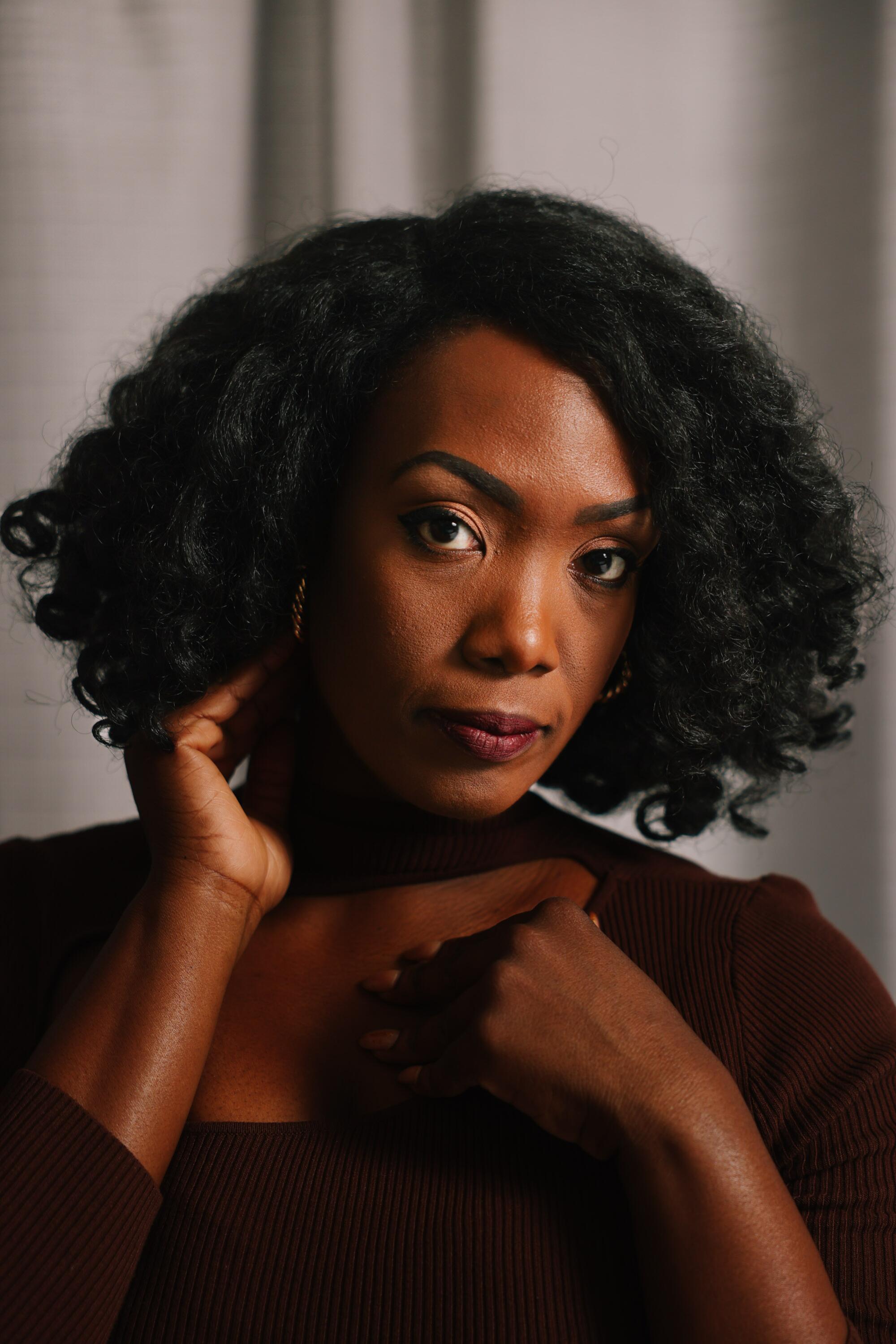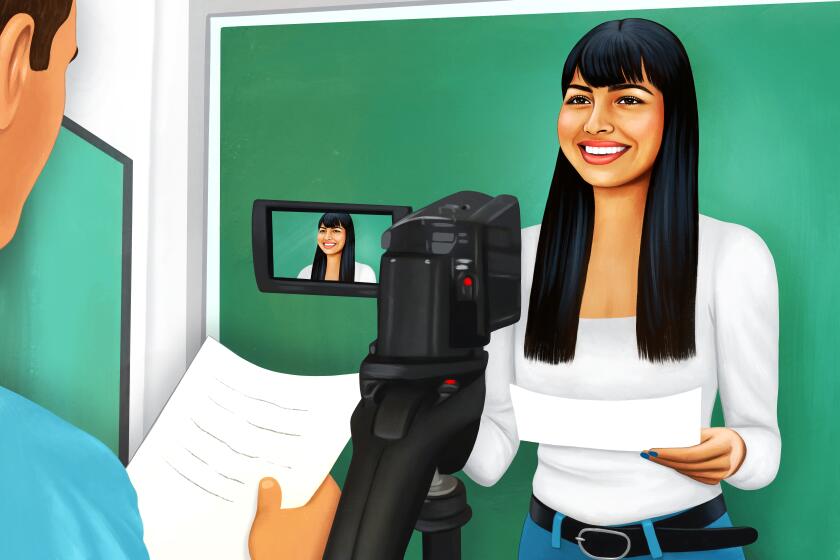
Carolyn Michelle Smith‘s definition of success as an actor changes constantly. As it should, she said.
“The world is going to evolve your perceptions of success,” she said. “What you see as possible, what you see others achieving — that’s going to keep evolving, so your own picture of success needs to evolve.”

Smith remembers an exercise she and her drama classmates did at Juilliard: Her professor asked everyone to jump in the air and “scream out your greatest want.”
“Everyone’s jumping up, and it was like, ‘I want to be cool!,’ ‘I want to be a good actor!,’ ” she said. “And I shouted, ‘I want to be a series regular on a prime-time network cop drama!’”
She laughs at the specificity of her initial acting goal. “Up until that point, that’s all I saw as possible for a darker-skinned Black woman in the entertainment industry,” she said. “That was the height: to be on a ‘Law & Order’ or ‘NCIS’ as the partner to the main guy. And have the show run for 10 seasons.”
In the last couple decades, Smith has landed roles in popular TV dramas, including “House of Cards,” “Luke Cage,” “Russian Doll,” “The Chi” and — yes — “Law & Order: Special Victims Unit.” But the ceiling has been raised for what’s possible for someone like her in Hollywood, she said.

Hollywood careers
What defines success?
This profile is part of a series about what success looks like to working actors in Hollywood.
Born in Washington, D.C., Smith moved to Atlanta when she was 9 and started doing community theater. She acted throughout high school in D.C. and college in New York and got a commercial agent after attending a professional theater training program in Louisville, Ky.
But she never booked anything. So she decided to go into finance instead. She worked in investor relations in New York City for two years.
“Ultimately, I felt like, ‘This is a life of struggle,’” she said of acting. “And I didn’t know if I had it in me to really pursue the struggle.”
She wanted to make some money. She needed to feel some stability. But at that finance job she met a co-worker who was also an actor.
He made her realize it was possible to make acting a career. She became determined to figure out the “secret system” that made the inevitably less-stable life of an actor a little bit easier.
The job of a Hollywood actor is equal parts creative and business. Professionals demystify what the job is and how to strategize for a long career.
After performing in some off-off-Broadway plays, Smith applied to graduate school programs at Yale, Juilliard and UC San Diego. Getting into Juilliard changed her life, she said.
She was 28 by the time she started her four-year program, which made her approach it in a different way than she would have if she were just out of high school or college, she said.
“I was intentional about what I wanted from the program,” she said. “I wanted to work on my voice. I wanted to gain a network. And I wanted to find freedom and trust in my physical creative choices … so I could have power as an artist.”
Now based in Los Angeles, she lives in a building in Hollywood built in 1904 that used to house out-of-town actors who came to Los Angeles vying for a studio contract.
“The system was very much about having to wait for the next thing,” she said.
Creatives have never been great at waiting, she said. “As actors, we put so much energy into training,” she said. “We’re creative machines, so we’re not wired to handle that quiet time. We get overwhelmed. We get anxious.”
But she thinks actors today have much more autonomy than the actors of early Hollywood — and they should embrace it. She calls today’s Hollywood the “era of the entrepreneurial artist.”
She no longer aspires to play a cop in prime-time television. She’d rather produce her own material, inspired by the wave of Black creators in Hollywood. She’s currently developing a project loosely based on a famous calypso singer, as a nod to her Trinidad and Tobago heritage.
Being an educator has become an integral part of her new picture of success. She helped create the acting track of Lena Waithe’s Hilllman Grad Mentorship Lab and also coaches actors through her company, AspireHigher Coaching Services, Inc., which she’s transitioning into a consulting business.
“I think you can deepen your relationship to the work by being in a consistent space to impart this information to someone else,” she said. “It’s like pouring water over a new plant. There’s great value in being able to say, ‘I was able to positively impact lives.’ ”
Photo editing and design by Calvin Alagot.
More to Read
Inside the business of entertainment
The Wide Shot brings you news, analysis and insights on everything from streaming wars to production — and what it all means for the future.
You may occasionally receive promotional content from the Los Angeles Times.













